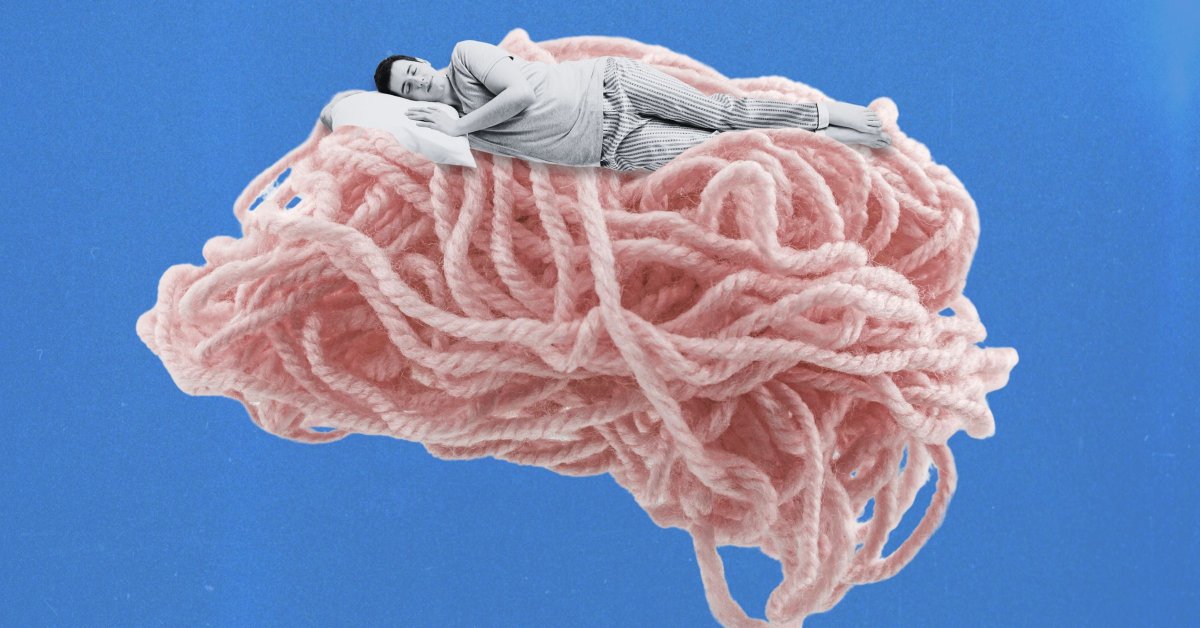The Truth About Sleeping On It: Does It Really Work?

Welcome to your ultimate source for breaking news, trending updates, and in-depth stories from around the world. Whether it's politics, technology, entertainment, sports, or lifestyle, we bring you real-time updates that keep you informed and ahead of the curve.
Our team works tirelessly to ensure you never miss a moment. From the latest developments in global events to the most talked-about topics on social media, our news platform is designed to deliver accurate and timely information, all in one place.
Stay in the know and join thousands of readers who trust us for reliable, up-to-date content. Explore our expertly curated articles and dive deeper into the stories that matter to you. Visit Best Website now and be part of the conversation. Don't miss out on the headlines that shape our world!
Table of Contents
The Truth About Sleeping on It: Does Delaying Decisions Really Work?
We've all been there. Faced with a tough decision, a friend or family member suggests, "Sleep on it." But is this age-old advice just a cliché, or is there actual scientific merit to postponing judgment until morning? The short answer is: it depends. While not a magical solution for every dilemma, delaying a decision can offer significant benefits under the right circumstances. Let's delve into the science and explore when "sleeping on it" is truly effective.
The Power of Unconscious Processing
Our brains don't simply shut down when we sleep. Instead, they engage in a complex process of consolidating memories, processing information, and solving problems subconsciously. This unconscious processing is where the magic of "sleeping on it" often happens. While you're resting, your brain works behind the scenes, sifting through the information related to your decision, identifying patterns, and potentially revealing new insights you might have missed while consciously analyzing the problem. Studies have shown that sleep improves creative problem-solving, suggesting that a good night's rest can lead to more innovative and effective solutions.
When "Sleeping on It" is Most Effective
However, simply going to bed with a problem doesn't guarantee a miraculous solution. The effectiveness of this strategy depends on several factors:
-
Complexity of the Decision: Simple, straightforward decisions rarely benefit from delay. For example, choosing between two similar brands of cereal likely doesn't require overnight deliberation. However, complex decisions with significant emotional weight, like accepting a job offer or ending a relationship, can greatly benefit from unconscious processing during sleep.
-
Emotional Involvement: Highly emotional decisions often cloud judgment. Sleep allows you to distance yourself from immediate emotional responses, leading to a more rational and objective perspective in the morning. This is particularly crucial when dealing with high-stakes situations.
-
Time Constraints: This is a crucial factor. "Sleeping on it" isn't always feasible. If you have a tight deadline, delaying the decision might not be an option. Prioritize urgency when considering this strategy.
-
Information Overload: If you're overwhelmed by information, sleep can help you integrate and synthesize it more effectively. Your brain can process the data subconsciously, making it easier to identify key factors and reach a well-informed decision.
Beyond Sleep: The Importance of Mindfulness and Reflection
While sleep plays a crucial role, simply going to bed and hoping for a solution isn't enough. Before you retire for the night, take some time for mindful reflection. Write down the pros and cons, identify your priorities, and try to approach the problem objectively. This pre-sleep preparation maximizes the benefits of unconscious processing.
When to Avoid "Sleeping on It"
There are situations where delaying a decision might be detrimental:
- Time-sensitive decisions: As mentioned earlier, urgent decisions demand immediate action.
- Decisions requiring immediate action: In emergency situations, swift action is crucial.
- Decisions with rapidly changing circumstances: If the situation is dynamic and information is constantly evolving, delaying might result in outdated information.
Conclusion: A Valuable Tool, Used Wisely
The adage "sleep on it" isn't just folklore. It's a valuable tool for navigating complex and emotionally charged decisions. By allowing your unconscious mind to work through the problem, you can often arrive at a more informed, rational, and creative solution. However, remember that it's not a universal solution and requires careful consideration of the decision's context and time constraints. Use it wisely, and you may find it leads to better outcomes. Now, what big decision will you sleep on tonight?

Thank you for visiting our website, your trusted source for the latest updates and in-depth coverage on The Truth About Sleeping On It: Does It Really Work?. We're committed to keeping you informed with timely and accurate information to meet your curiosity and needs.
If you have any questions, suggestions, or feedback, we'd love to hear from you. Your insights are valuable to us and help us improve to serve you better. Feel free to reach out through our contact page.
Don't forget to bookmark our website and check back regularly for the latest headlines and trending topics. See you next time, and thank you for being part of our growing community!
Featured Posts
-
 Could Alison Brie Return For Scream 7 Actress Weighs In On Franchises Future
Aug 10, 2025
Could Alison Brie Return For Scream 7 Actress Weighs In On Franchises Future
Aug 10, 2025 -
 Sakamoto Days Episode 16 Sneak Peek At The Story And Character Designs
Aug 10, 2025
Sakamoto Days Episode 16 Sneak Peek At The Story And Character Designs
Aug 10, 2025 -
 Sakamoto Days Season 1 Part 2 Episode 15 When And Where To Stream
Aug 10, 2025
Sakamoto Days Season 1 Part 2 Episode 15 When And Where To Stream
Aug 10, 2025 -
 Social Media Buzz Szas Bold Bikini And Unexpected Foot Detail
Aug 10, 2025
Social Media Buzz Szas Bold Bikini And Unexpected Foot Detail
Aug 10, 2025 -
 Phoenix Concertgoers Rave About Chris Stapletons Outlaw Country Show
Aug 10, 2025
Phoenix Concertgoers Rave About Chris Stapletons Outlaw Country Show
Aug 10, 2025
Latest Posts
-
 Red Lion Resident Dies Following I 81 Collision With Two Tractor Trailers
Aug 11, 2025
Red Lion Resident Dies Following I 81 Collision With Two Tractor Trailers
Aug 11, 2025 -
 Is Kevin Durant Taking A Pay Cut To Join The Houston Rockets
Aug 11, 2025
Is Kevin Durant Taking A Pay Cut To Join The Houston Rockets
Aug 11, 2025 -
 Dricus Du Plessis Eyes Khamzat Chimaev After Significant Ufc Development
Aug 11, 2025
Dricus Du Plessis Eyes Khamzat Chimaev After Significant Ufc Development
Aug 11, 2025 -
 Dricus Du Plessis Predicts Khamzat Chimaev Fight Following Ufc Event
Aug 11, 2025
Dricus Du Plessis Predicts Khamzat Chimaev Fight Following Ufc Event
Aug 11, 2025 -
 Post Chimaev Fight Chael Sonnens Controversial P4 P Top Three Ranking
Aug 11, 2025
Post Chimaev Fight Chael Sonnens Controversial P4 P Top Three Ranking
Aug 11, 2025
